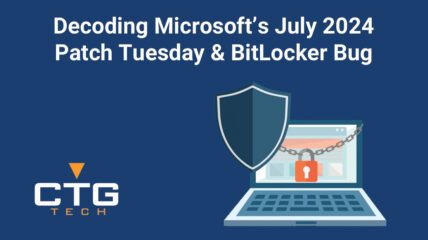Network Security: The Importance of Securing Your Network
In the information technology world, network security is the act of maintaining the integrity of a computer network and the data within it. A network can consist of any number and variety of interconnected devices. Network security is important because it keeps sensitive data safe from cyber-attacks and ensures that the network is usable and can be trusted.
Security management may involve a wide variety of security tools for both hardware and software. Security becomes even more important as networks become increasingly complex and businesses become more reliant on their networks and data to conduct business. Methods for enforcing security should evolve as networks and attack methods evolve, and they should aim to prevent breaches by limiting risk. No matter the specific method or enterprise security strategy, security is usually framed as everyone’s responsibility because every user on the network represents a possible vulnerability in that network.
Why is network security important?
Network security is important because it protects valuable data, which, when possessed by the wrong person, could end up causing a wide spectrum of problems — from inconveniences to catastrophes. An organization without adequate security cannot function. In addition, as hackers become more sophisticated in their methods, network security becomes even more critical to maintain.
There are many reasons to prioritize network security, but some of the most important include:
Protecting Confidential Data
Network security is important for protecting confidential data, such as customer information, financial records, and proprietary business information. A security breach could result in this information being leaked, stolen, or used without authorization, which could have a devastating impact on the business.
Preventing Data Loss
Another important reason to prioritize security is to prevent data loss. A security breach can result in data being deleted, corrupted, or stolen, which can lead to significant financial losses and downtime.
Ensuring Compliance
Many businesses are required to comply with industry-specific regulations, such as the Payment Card Industry Data Security Standard (PCI DSS) or the Health Insurance Portability and Accountability Act (HIPAA). Non-compliance can result in significant fines and penalties.
Limit Liability
If a security breach occurs and sensitive data is leaked, the business could be held liable. This could result in lawsuits and damage to the business’ reputation.
Maintain Customer Trust
Customers trust businesses with their personal information, and a security breach can jeopardize that trust. If customers feel that their information is not safe, they will take their business elsewhere.
Network security is an important part of any business’ overall security strategy. Investing in security can help to protect the business from a wide range of potential threats and ensure that customer trust is maintained. CTG Tech has well-developed security practices as well as best-in-industry products and the experience to help your team put them in place. Contact us today to learn more!




